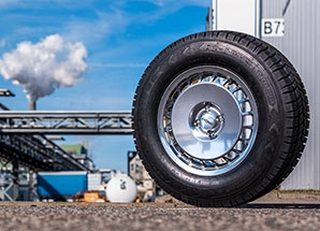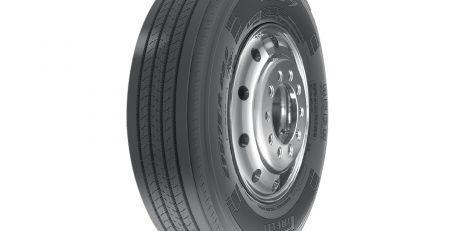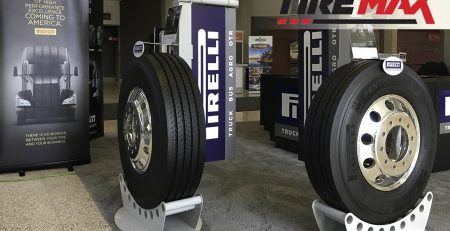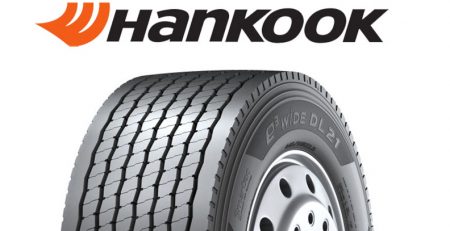Will import duties cause shortage of TBR tires?
AKRON — Will the newly imposed countervailing and antidumping import duty orders on truck and bus tires from China lead to shortages of tires and/or rising prices?
That scenario seems to be more than likely, according to various sources contacted by Tire Business. The big question, however, is: To what extent?
The U.S. Tire Manufacturers Association may have presaged a product shortage inadvertently with its latest industry shipment report, issued March 5, which projected a 6.8-percent drop in medium-duty truck/bus shipments this year.
The drop, which translates to 1.5 million units, is tied primarily to the anticipated impact of the higher import duties on China, the No. 1 source of imported truck tires.
Truck tire imports from China last year soared 42.1 percent to 9.22 million units, or more than half of all imports. The increase, however, was inflated by importers’ placing extra orders toward year-end to get product on-shore prior to the Trump administration’s threatened 15-percent tariffs on billions of dollars’ worth of goods from China.
While the administration eventually postponed those tariffs, the moves proved providential when the Department of Commerce handed down in February its decision to impose countervailing and antidumping duty orders on truck and bus tires from China, sources said.
The surplus inventory of these “tariff-beater” imports on hand could serve to fill the gap, at least temporarily, for any shortfalls in new imports, sources indicated.
At this point it’s still speculation as to how much the duties — ranging from 20.98 to 63.34 percent countervailing and 9 to 22.57 percent antidumping — will affect imports from China.
It should be noted that the USTMA reports reflect the domestic industry’s thoughts on shipments, not demand, which is affected by a spectrum of influences.
According to various sources, trucking activity is expected to keep pace with, if not exceed, that of 2018, which according to American Trucking Associations (ATA) data was 6.6 percent ahead of 2017. The ATA noted, however, that the pace of growth started slowing in the fourth quarter and has been up and down so far in 2018.
According to the ATA, trucks moved 10.8 billion tons of freight in 2017, generating $700 billion in annual revenue. The U.S. trucking industry employs 3.5 million drivers and 4.2 million more in related jobs.
Another indicator of freight growth is registrations of new vehicles. According to IHS Markit, registrations of Class 8 vehicles are expected to rise about 8 percent this year over 2018.
An early indicator of how prices might be affected could be Bridgestone Americas Tire Operations’ decision to raise prices on all Dayton-brand truck and bus radial tires sold in the U.S. by 20 percent, effective March 5.
Bridgestone said the price change is in response to increased business costs and other market dynamics. Bridgestone sources most of the Dayton-brand product from China.
Bridgestone raised prices on Dayton truck and bus tires sold in the U.S. and Canada last September by 10 percent.
Toyo Tire U.S.A. Corp. — which sources many ofits medium truck tires from a plant in China — has raised prices on its commercial tire range twice so far in 2019, on May 1 by an average of 5 percent and on Jan. 1 by 2 percent.
In both cases it exempted the Toyo M320 on-/off-road tire, which is produced in Japan.
“Further government actions have made it necessary to adjust our commercial tire prices,” said Randy Gaetz, senior vice president, sales, said in mid-February when announcing the price increase.
Most companies importing/distributing Chinese truck tires contacted by Tire Business declined to comment on pricing or didn’t return calls.
Some wholesalers, however, said they’d seen notices of increases up to 30 percent but declined to identify which brands.
One company that did respond was China Manufacturers Alliance L.L.C. (CMA), which distributes the Double Coin brand. According to CMA Vice President Walt Weller, his company — which received one of the lowest import duties and which is importing more and more from its still relatively new plant in Thailand — has announced a 5-percent price increase.
One segment of the industry that welcomed the increased import duties was the retreading community, which has complained for the past few years about the detrimental effect low-priced new imported tires has on retreading.
According to Retread Instead — the U.S. retreading advocacy group — the imposition of the new duties “will fundamentally change the supply side of new tires in the U.S. and over the next two years” and hasten a return to an improved ratio of retreads to new tires sold and put into service in the U.S.
Because of tariffs, the group said, there is more opportunity to grow than there has been in years.
“We are encouraging retreaders to ‘get back to the basics’ and promote total tire management programs to fleets by conducting fleet inspections, out-of-service tire analysis and recommending good solid tire management policies for fleets that includes managing total tire life to receive maximum benefits,” the organization said.
With the tariffs in place, the retreading industry hopes to see increased supplies of better quality truck tires that will be more repairable and retreadable, delivering lower total life-cycle cost and reducing the negative impact on the environment.
SOURCE: TIRE BUSINESS












